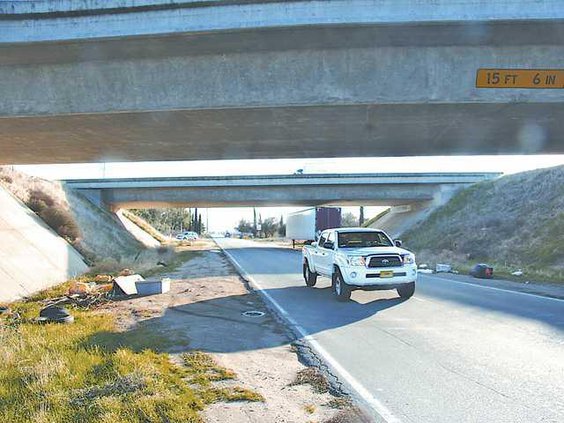Manteca upped the ante in its bid to land 500 jobs and generate as much as $6 million a year in room tax to support municipal services.
A split Manteca City Council reversed itself Tuesday and essentially made the McKinley Avenue interchange on the 120 Bypass and the proposed nearby Great Wolf Resort, family entertainment center, and 100 acres of potential commercial development top municipal priorities.
Councilman Steve DeBrum - who is part of the council committee negotiating with Great Wolf Resorts to bring a 600-room hotel, 75,000-square-foot indoor water park, and 30,000-square-foot conference center to Manteca just west of Costco on city owned land - indicated he expected the private sector project to move forward in January. Great Wolf would provide the 500 jobs plus room tax receipts.
It is why DeBrum voted to reverse the council decision he supported just a month ago to basically suspend design work for the nearby McKinley Avenue interchange and send $2.8 million in federal dollars back to Washington, D.C.
It would take about $20 million to convert McKinley into a full-blown interchange. It is the least expensive of six interchange projects Manteca is pondering with costs ranging from $25 million for Airport Way interchange modifications to over $100 million for a new interchange on Highway 99 south of Austin Road.
What is riding on the proposed Great Wolf Resort is best framed not simply in the 500 year-round jobs and the fact that it is expected to draw other family entertainment-related businesses to locate in Manteca. Just as big a stake is the estimated $4 million to $6 million in room taxes that conservative projections by the city that show a 600-room Great Wolf Resort cold generate in a typical year. The lower figure is equal to almost a quarter of the $26 million the city now collects for all existing revenue sources each year to pay for general fund operations ranging from police and fire to parks and streets.
Opposing the undoing of last month’s decision were council members Vince Hernandez and John Harris.
Harris doubted that the interchange would be “not in my lifetime” due to funding considerations and the fact he felt it was probably the lowest priority of all city interchange projects.
Hernandez, who made the initial pitch last month to pull the plug in McKinley Avenue work for now, repeated his previous position that he felt the city was spending money so they wouldn’t have to return it to the federal government. Hernandez said there were too many variables including a pending state court ruling on the future of redevelopment agencies. RDA funding could help build the interchange. The court decision is expected in January.
Caltrans is expected to require Manteca provide an additional access point to the 120 Bypass besides Airport Way to handle traffic volume expected to be generated d by the Great Wolf Resort, the nearby family entertainment zone and an accompanying 100 acres of commercial.
Mayor Willie Weatherford - who made the motion last week to stop forward progress on the interchange - said Tuesday that it didn’t make much sense to return $2.8 million and then possibly several months later turn around and have to come up with local money to replace it to do the work.
The exact action taken Tuesday was to enter into a no-cost agreement with Caltrans to provide oversight and independent quality assurance for the design work. The city will also go ahead and execute a $1.5 million contract the council approved with Rajappan & Meyer Consulting to do the actual design work and environmental studies. The balance of the federal money is expected to go toward obtaining right-of-way.
Rural South Manteca resident John Patton was among those speaking against the council reversing its previous decision.
“If you design it they will come,” Patton said in reference to his belief that the interchange would be growth inducing which in turn would create pressure to proceed with the McKinley Expressway. It is the expressway that would run south and the east through rural and farm area that Patton ultimately opposes.
Brian Lownesbery implored the council to stop the mentality of “let’s grab it (the federal money) or someone else is going to use it.”
All but one of the seven citizens speaking opposed proceeding with the interchange. Ron Barber supported it in the belief it would trigger economic investment in Manteca. Barber owns land to the southeast of the interchange.
Hungry for Great Wolf jobs
McKinley Avenue interchange moving forward





